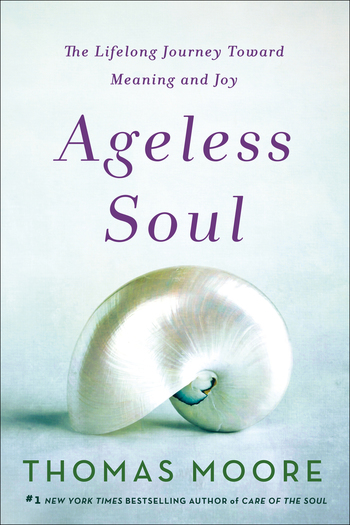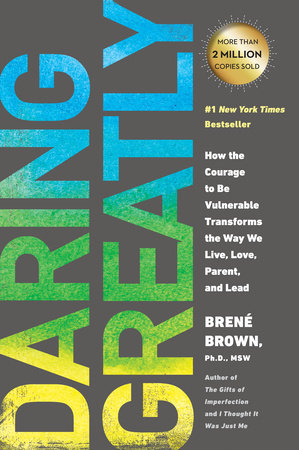A month ago, I felt that I was in good health, even robust health. At 81, I still swim a mile a day. But my luck has run out—a few weeks ago I learned that I have multiple metastases in the liver.
YOU MIGHT ALSO LIKE
CLEAR ALL
BY TEACHER
BY TYPE
FILTER

TOPIC
- Courage (56)
- Physical Health (42)
- Grief (38)
- Finding Meaning (35)
- Illness and Injury (34)
- Depression (33)
- Fear (33)
- Anxiety (29)
- Diet and Nutrition (29)
- Hospice (29)
- Death-Positive Movement (28)
- Resilience (28)
- Offering Support to Others (26)
- Death or Loss of a Loved One (25)
- Emotional and Mental Health (25)
- Handling a Loved One’s Illness (25)
- Mind-Body Connection (25)
- Women’s Well-Being (23)
- Afterlife (21)
- Anger (20)
- Endurance (20)
- Memoir (20)
- Building Character (19)
- Chronic Health Conditions (19)
- Fatigue (19)
- Longevity (19)
- Self-Care (19)
- Chronic Pain (18)
- Athlete Well-Being (17)
- Buddhism (17)
- Gratitude (17)
- Grit (17)
- Self-Healing (17)
- Transitions (16)
- Exercise (15)
- Near-Death Experience (15)
- Relationship Challenges (15)
- Stress (15)
- Stress Management (15)
- Work Challenges (14)
- Caregiver Well-Being (13)
- Identity (13)
- Imagination and Creativity (13)
- Decision Making (12)
- Healthy Eating (12)
- Integrative Medicine (12)
- Neuroscience (12)
- Retirement (12)
- Search for Purpose (12)
- Self-Acceptance (12)
- Self-Discovery (12)
- Self-Reflection Practices (12)
- Authenticity (10)
- Compassion (10)
- Death or Loss of a Child (10)
- Fellowship and Community (10)
- Acceptance (9)
- Brain Health (9)
- Dementia (9)
- Managing Energy (9)
- Mindfulness (9)
- Positive Thinking (9)
- Spiritual Growth (9)
- Trauma Healing (9)
- Traumatic Grief (9)
- Vulnerability (9)
- Well-Being (9)
- Body Image (8)
- Death or Loss of a Parent (8)
- Energy Healing (8)
- Female Empowerment (8)
- Freedom (8)
- Growth Mindset (8)
- Loss of Partner/Spouse (8)
- Meditation (8)
- Midlife Crisis (8)
- Self-Love (8)
- Trauma (8)
- Activism/Service (7)
- Autoimmune Disease (7)
- Chronic Fatigue (7)
- Past Lives and Reincarnation (7)
- Rebirth (7)
- Sudden Weight Change (7)
- Awareness (6)
- Friendship (6)
- Happiness (6)
- Healing Approaches (6)
- Hope (6)
- Insomnia (6)
- Intuition (6)
- Letting Go (6)
- Life Challenges (6)
- Lifestyle Medicine (6)
- Mentoring (6)
- Nutritional Medicine (6)
- Social Justice (6)
- Suffering (6)
- Tibetan Buddhism (6)
- Transformation (6)
- Asking for Help (5)
- Communication Skills (5)
- Compassion Fatigue (5)
- Confidence (5)
- Consciousness (5)
- Empathy (5)
- Epigenetics (5)
- Faith (5)
- Guided Meditation (5)
- Immortality (5)
- Inflammation (5)
- Inner Peace (5)
- Loss of Appetite (5)
- Love (5)
- Men’s Well-Being (5)
- Moral Philosophy (5)
- Optimism (5)
- Presence (5)
- Science and Spirituality (5)
- Self-Development (5)
- Self-Mastery (5)
- Self-Reckoning (5)
- Self-Reliance (5)
- Sexuality (5)
- Shadow (5)
- Situational Depression (5)
- Spiritual Awakening (5)
- Zen Buddhism (5)
- Accepting Love (4)
- Astral Projection (4)
- Biohacking (4)
- Creative Well-Being (4)
- Goddess (4)
- Human Potential (4)
- Identity Shifts (4)
- Inner Life (4)
- Integrity (4)
- Intention (4)
- Leadership (4)
- Loneliness (4)
- Massage (4)
- Motherhood (4)
- Psychology and Spirituality (4)
- Self-Actualization (4)
- Self-Compassion (4)
- Spiritual Healing (4)
- Suicide (4)
- The Feldenkrais Method (4)
- Trust (4)
- Values (4)
- Work Relationships (4)
- Adaptability (3)
- Betrayal (3)
- Breathwork (3)
- Community Healing (3)
- Curiosity (3)
- Ego Dissolution (3)
- Entrepreneurship (3)
- Fasting for Health (3)
- Forgiveness (3)
- God (3)
- Grace (3)
- Habits of Mind (3)
- Homophobia (3)
- Honoring Emotion (3)
- Humility (3)
- Inner Strengths (3)
- Inspiration (3)
- Journaling (3)
- Jungian Analysis (3)
- Karma (3)
- LGBTQIA Well-Being (3)
- Mindfulness Practices (3)
- Movement Meditation (3)
- Neuroplasticity (3)
- Parenting (3)
- Personal Development (3)
- Poetry (3)
- Racial Justice (3)
- Relationship with Money (3)
- Relationship with Time (3)
- Self-Control (3)
- Self-Expression (3)
- Setting Limits and Boundaries (3)
- Sex (3)
- Shame (3)
- Social Responsibility (3)
- Soul Mission (3)
- Speaking Your Truth (3)
- Spiritual Practices (3)
- Spiritual Quest (3)
- Spirituality and Health (3)
- Veteran Well-Being (3)
- Weight Concerns (3)
- Work-Life Balance (3)
- Yoga (3)
- Young Adult Well-Being (3)
- A Course in Miracles (2)
- Access to Education (2)
- Addiction (2)
- Belonging (2)
- Body Positivity (2)
- Bodywork (2)
- Changes in Libido (2)
- Cognitive Behavioral Therapy (2)
- Comparing Belief Traditions (2)
- Connection with Nature (2)
- Criticism and Rejection (2)
- Death or Loss of a Sibling (2)
- Disabled Well-Being (2)
- Divorce and Breakup (2)
- Dysfunctional Childhood (2)
- Energy Balancing (2)
- Enlightenment (2)
- Failure (2)
- Family Dynamics (2)
- Fiction (2)
- Focus (2)
- Functional Medicine (2)
- Genetics (2)
- Global Challenges (2)
- Guilt (2)
- Habit Formation (2)
- Holism (2)
- Interdependence (2)
- Intimacy (2)
- Joy (2)
- Judaism (2)
- Kids and Sports (2)
- LGBTQIA Sexuality (2)
- Life Force Energy (2)
- Motivation (2)
- Native American Beliefs (2)
- Naturopathy (2)
- Peak Performance (2)
- Performance Pressure (2)
- Philosophical Approaches (2)
- Positive Psychology (2)
- Psychology (2)
- Racial Discrimination (2)
- Racial Healing (2)
- Racism (2)
- Regret (2)
- Reproductive Health (2)
- Self-Esteem (2)
- Self-Realization (2)
- Self-Worth (2)
- Sexual Health (2)
- Sleep (2)
- Spiritual Development (2)
- Spiritual Life (2)
- Spirituality and Politics (2)
- Storytelling (2)
- Taoism (2)
- Veganism (2)
- Visions and Hallucinations (2)
- Wake-Up Calls (2)
- Wholeness (2)
- Addiction Recovery (1)
- Anger Management (1)
- Archetypes (1)
- Ayurveda (1)
- BIPOC Well-Being (1)
- Black Well-Being (1)
- Chakras (1)
- Channeling (1)
- Child’s Anxiety (1)
- Child’s Emotional Growth (1)
- Child’s Trauma (1)
- Chronic Anxiety (1)
- Clairvoyance and Precognition (1)
- Cognition (1)
- Collaboration (1)
- Collective Trauma (1)
- Coming Out (1)
- Competition (1)
- Conflict Resolution (1)
- Connection (1)
- Conscious Evolution (1)
- Cross-Cultural Dynamics (1)
- Dark Night of the Soul (1)
- Despair (1)
- DMT (1)
- Dreamwork (1)
- Drug Addiction (1)
- Ego (1)
- Embodiment (1)
- Emotional Intelligence (EQ) (1)
- Empowerment (1)
- Energy Healing for Animals (1)
- Existentialism (1)
- Family Acceptance (1)
- Feminism (1)
- Forest Bathing (1)
- Gender Justice (1)
- Generosity (1)
- Handling a Child’s Illness (1)
- Herbal Supplementation (1)
- Hero’s Journey (1)
- Higher Calling (1)
- Holotropic Breathwork (1)
- Indigenous Healing Approaches (1)
- Job Loss (1)
- Ketogenic Diet (1)
- Kindness (1)
- Learning Styles (1)
- Light Therapy (1)
- Loss of an Animal Companion (1)
- Lovingkindness Meditation (1)
- Memory (1)
- Mental Health Challenges (1)
- Mindfulness Meditation (1)
- Negative Self-Talk (1)
- Neopaganism (1)
- Oneness (1)
- Passion (1)
- Past Life Regression (1)
- Patience (1)
- Perception (1)
- Play (1)
- Postpartum Depression (1)
- Pregnancy and Childbirth (1)
- Psilocybin (1)
- Psychedelic Journey (1)
- Psychedelic-Assisted Therapy (1)
- Psychic Abilities (1)
- Psychoanalysis (1)
- PTSD (1)
- Qi (1)
- Qigong (1)
- Quantum Physics (1)
- Quitting Your Job (1)
- Raising Daughters (1)
- Rest (1)
- Rolfing (1)
- Romantic Relationships (1)
- Sacred Feminine (1)
- Self-Limiting Beliefs (1)
- Self-Pressure (1)
- Shamanism (1)
- Shared-Death Experience (1)
- Sleep Disorders (1)
- Social Anxiety (1)
- Social Psychology (1)
- Spiritual Direction (1)
- Stoicism (1)
- Superfoods (1)
- T’ai Chi (1)
- Telepathy (1)
- Transpersonal Psychology (1)
- Unfulfilled Career (1)
- Unity (1)
- Vegetarianism (1)
- Visualization (1)
- War (1)
- Women’s Rights (1)
- Zen Meditation (1)
FILTER

TEACHER
- Joanne Cacciatore (7)
- Kris Carr (6)
- Stephen Levine (6)
- Atul Gawande (5)
- Jean Shinoda Bolen (5)
- Zalman Schachter-Shalomi (5)
- BJ Miller (4)
- Chip Conley (4)
- Connie Zweig (4)
- Eckhart Tolle (4)
- Jane E. Brody (4)
- Joan Halifax (4)
- Ken Dychtwald (4)
- Nikki Mirghafori (4)
- Bernie S. Siegel (3)
- Dave Asprey (3)
- Deepak Chopra (3)
- Donna Jackson Nakazawa (3)
- Marianne Williamson (3)
- Marie Forleo (3)
- Mitch Albom (3)
- Neale Donald Walsch (3)
- Ondrea Levine (3)
- Ram Dass (3)
- Stanislav Grof (3)
- William Bloom (3)
- Andrew Weil (2)
- Cynthia Bourgeault (2)
- Daniel Amen (2)
- Frank Ostaseski (2)
- Gabor Maté (2)
- Gloria Steinem (2)
- Harriet Lerner (2)
- Herbert Benson (2)
- Joan Chittister (2)
- Lissa Rankin (2)
- Mantak Chia (2)
- Mark Hyman (2)
- Maya Angelou (2)
- Oliver Sacks (2)
- Paulo Coelho (2)
- Pema Chödrön (2)
- Raymond Moody (2)
- Sam Harris (2)
- Thich Nhat Hanh (2)
- Thomas Moore (2)
- Toni Bernhard (2)
- Yongey Mingyur Rinpoche (2)
- Albert Camus (1)
- Amit Goswami (1)
- Andrew Holecek (1)
- Angela Duckworth (1)
- Angeles Arrien (1)
- Anita Moorjani (1)
- Ann Marie Chiasson (1)
- Audre Lorde (1)
- Barbara Marx Hubbard (1)
- Brendon Burchard (1)
- Brynn Putnam (1)
- Buddha (1)
- C. Norm Shealy (1)
- Caroline Myss (1)
- Chalene Johnson (1)
- Chögyam Trungpa (1)
- Christiane Northrup (1)
- Colleen Saidman Yee (1)
- Cyndi Dale (1)
- David Perlmutter (1)
- David Spiegel (1)
- Debbie Ford (1)
- Deena Metzger (1)
- Diane Stein (1)
- Dilip Jeste (1)
- Dondi Dahlin (1)
- Dorothy Day (1)
- Elizabeth Lesser (1)
- Ellen Langer (1)
- Elson Haas (1)
- Gangaji (1)
- Gay Hendricks (1)
- Gerald Jampolsky (1)
- Hildegard von Bingen (1)
- Huston Smith (1)
- Ida Rolf (1)
- J. Krishnamurti (1)
- Jack Canfield (1)
- James Hillman (1)
- James Hollis (1)
- Jared Diamond (1)
- Jeffrey Mishlove (1)
- Jetsunma Tenzin Palmo (1)
- Joel Kahn (1)
- John Bradshaw (1)
- John Sarno (1)
- Joseph M. Marshall III (1)
- Judith Orloff (1)
- Julia Cameron (1)
- Kareem Abdul-Jabbar (1)
- Karen Casey (1)
- Karen May (1)
- Kathleen Dowling Singh (1)
- Ken Wilber (1)
- Kenneth Pelletier (1)
- Leonard Orr (1)
- Louise Hay (1)
- Malala Yousafzai (1)
- Marion Woodman (1)
- Mark Nepo (1)
- Mark Victor Hansen (1)
- Martha Beck (1)
- Martin Seligman (1)
- Mary Oliver (1)
- Matthieu Ricard (1)
- Michael A. Singer (1)
- Michio Kaku (1)
- Mirabai Bush (1)
- Mooji (1)
- Natalie Goldberg (1)
- Nelson Mandela (1)
- Nikki Giovanni (1)
- Oprah Winfrey (1)
- Panache Desai (1)
- Paramahansa Yogananda (1)
- Parker J. Palmer (1)
- Pope Benedict XVI (1)
- Rachel Naomi Remen (1)
- Ralph Metzner (1)
- Rebecca Solnit (1)
- Riane Eisler (1)
- Richard Leider (1)
- Rob Bell (1)
- Sadhguru (1)
- Sandy Boucher (1)
- Sanjay Gupta (1)
- Sarah Blondin (1)
- Serena Williams (1)
- Shakti Gawain (1)
- Simone Biles (1)
- Starhawk (1)
- Steven Johnson (1)
- Tara Brach (1)
- The Dalai Lama (1)
- William Bengston (1)
- Zinovia Dushkova (1)









